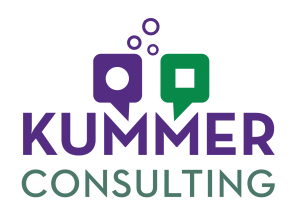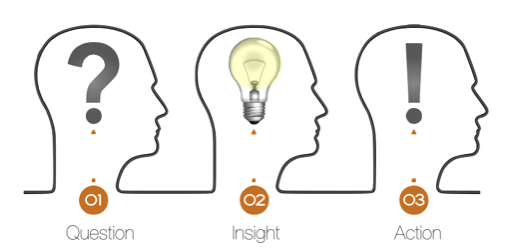Using Powerful Questions to Align Research and Development
Do you watch different functions blame each other for problems?
You’re not alone.
Problem: A recent client was bringing its first compound to Phase Two after decades of research on a new class of therapeutic agents. An investor deadline loomed for starting the dose-finding study.
Development was pushing to finalize the study but Research continued to oppose the design, insisting that the effect would disappear above a certain dose. Development found the arguments unconvincing. Research increasingly questioned the competence of the Development staff.
Solution: In the words of Chris Argyris, a seminal figure in the field of organizational dynamics, “Organizations are social devices for turning dilemmas into intergroup conflict.” By coaching Development to ask powerful questions instead of advocating points, I helped bring new knowledge to each side and defuse the tensions. The coaching enabled Development executives to see that their efforts to convince Research prevented anyone from learning what Research saw. Development instead shifted to focusing on questions around the scientific mechanisms underlying efficacy.
The next time the Development head talked with the Research head, he said, “Here’s how we’re planning to measure XX1. Are there additional analyses you think are important?” She answered, “What about XX2?” Development asked more about XX2, leading to her explanation, “We know that the compound stimulates XX1 for the clinical effect, but we believe that it also stimulates XX2, which later suppresses the effect. This is an immune process – we see balancing loops all the time.”
Result: For the first time, all the functions understood each other’s points of view. The use of powerful questions instead of forceful advocacy allowed everyone to understand why Research was so adamant about lowering the doses.
After the meeting, the Program Lead told Development “That was probably the best conversation I’ve ever had with Research. What did you do?” The Development head reflected. “This was a real breakthrough for me. I was so focused on getting the protocol written, and so frustrated with Research, I never thought about what they might be seeing that I didn’t. When I asked, that’s when her hypothesis was essentially exposed. We had never talked about this before.”
Instead of arguing about beliefs, they built a testable hypothesis. Everyone agreed on an elegant, adaptive study to test the effects.
For a free consultation on how to improve your organization’s effectiveness contact Merle at mkummer@kummerconsulting.com

